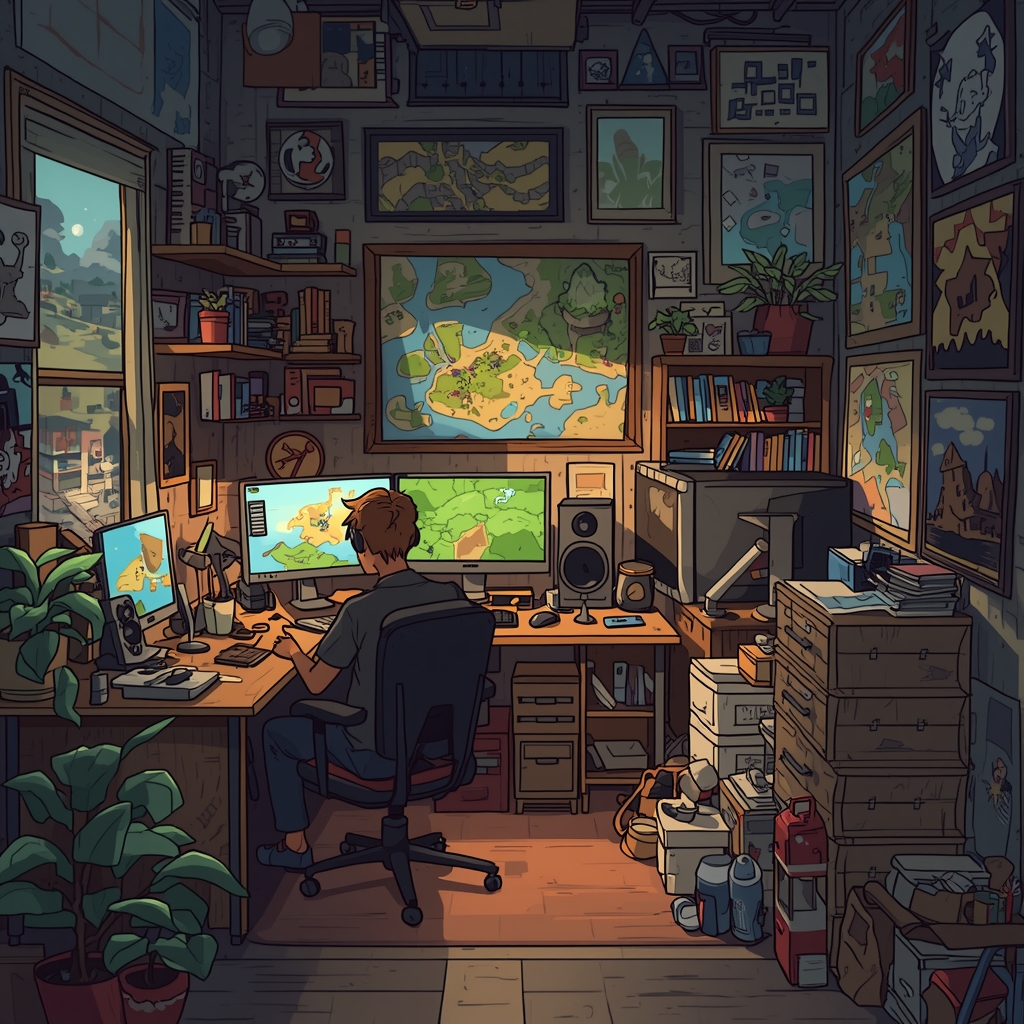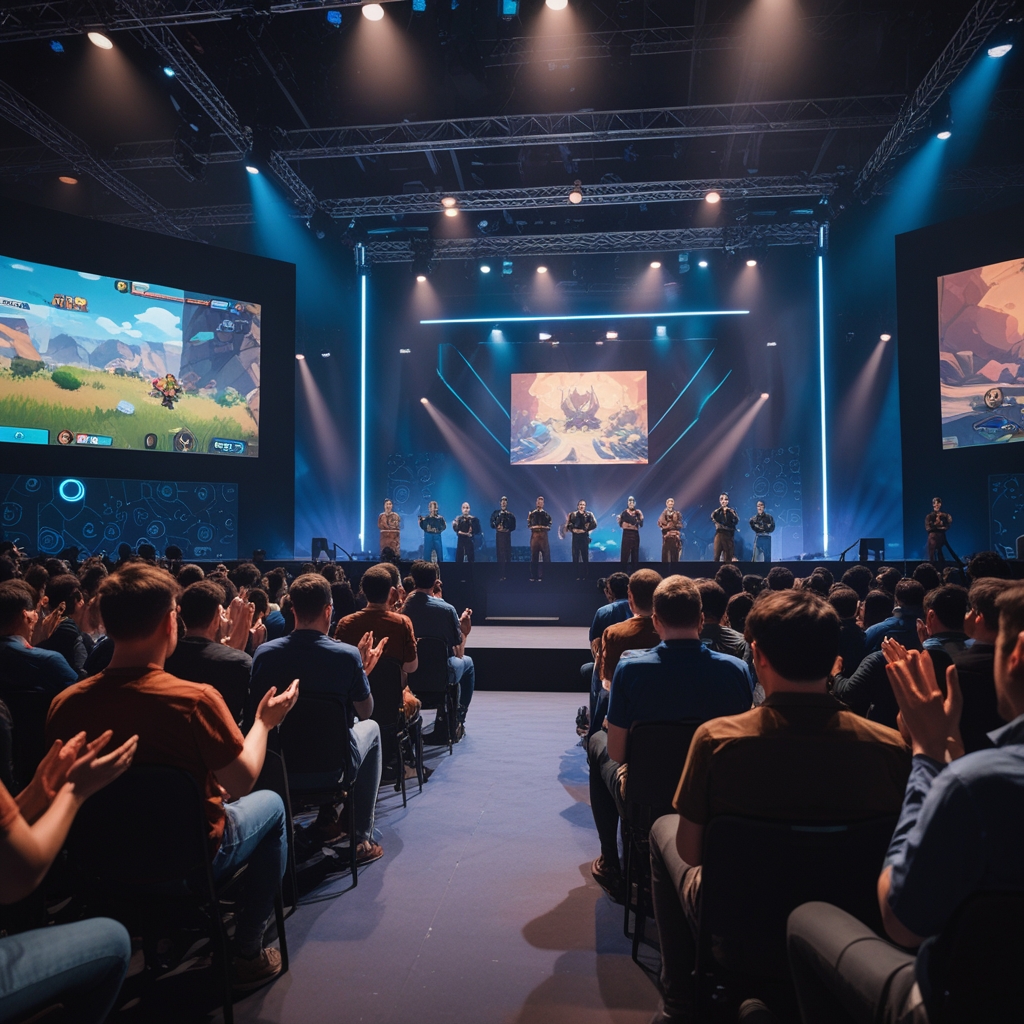
Welcome to the vibrant world of indie games, where creativity meets coding, and small teams make big waves in the gaming industry. The rise of indie game studios marks a significant shift in the landscape of video games, bringing fresh ideas and unique gameplay experiences to a global audience. This post explores how these small-scale developers are not just surviving but thriving, revolutionizing the industry in the process.
The Definition and Impact of Indie Game Studios
Indie game studios are typically small, often composed of a handful of passionate creators who handle multiple aspects of game development, from design to distribution. Freed from the constraints of large publishers, these studios can experiment with unconventional gameplay, narrative styles, and artistic directions. This independence is key to understanding their impact: it allows for innovation and creativity that can be riskier and more niche than mainstream games.
The Technological Democratization
One of the primary drivers behind the indie game boom is the accessibility of technology. With platforms like Unity and Unreal Engine offering free or affordable software, and tutorials aplenty online, almost anyone with a computer and internet can start crafting their own games. This democratization of game development tools has leveled the playing field, allowing indie developers to produce games that can compete in quality and complexity with those of big studios.
Example: Unity and Its Role in Indie Development
Consider Unity, a game engine that has become synonymous with indie game development. Its user-friendly interface and extensive asset store enable developers to build detailed, interactive worlds without the need for large teams or budgets. Games like “Ori and the Blind Forest” and “Monument Valley”, which are known for their stunning visuals and innovative gameplay, were both developed using Unity, showcasing the engine’s capability to support groundbreaking indie projects.
Cultural Shifts and Consumer Interest
As digital distribution grows, so does the visibility of indie games. Platforms such as Steam, itch.io, and the Nintendo eShop have made it easier than ever for small studios to get their games in front of players, without the need for costly marketing campaigns. Moreover, there’s a noticeable shift in consumer interest towards indie games. Players are increasingly drawn to the unique, personal, and diverse experiences offered by indie titles, which often contrast the formulaic outputs of larger gaming companies.

Support from the Gaming Community
The gaming community itself plays a crucial role in the rise of indie games. Through word-of-mouth, social media sharing, and community support on platforms like Kickstarter, small developers receive the promotion and funding they need to bring their visions to life. This grassroots marketing is often more authentic and can be more effective at reaching niche audiences than traditional advertising.
Innovative Gameplay and Storytelling
Without the pressure to hit sales targets of millions of units, indie developers are free to explore gameplay mechanics and storytelling methods that may not be considered commercially ‘safe’. This leads to innovation and diversity in their game designs. For instance, “Celeste” tackles mental health issues through its challenging gameplay and narrative, offering an experience that’s both emotionally engaging and satisfying to play.
Award-Winning Recognition
The quality and innovation of indie games have not gone unnoticed in the industry. Many indie titles have received critical acclaim and have won prestigious awards. “Hollow Knight”, an indie platformer, garnered much attention for its intricate hand-drawn graphics and deep lore, earning several awards and nominations in the process. This recognition helps elevate the status of indie games and inspires other developers to pursue their creative visions.
Conclusion: The Future Is Indie
The rise of indie game studios is more than a trend; it’s a sustainable shift in the gaming industry. As technology continues to evolve and the global gaming community grows, the opportunities for small studios will only expand. The creativity, passion, and innovation that indie developers bring to their projects enrich the gaming landscape, ensuring that the future of gaming is not only bright but also incredibly diverse and inclusive.

Indie games are not just changing how we play, but they are also changing what games can represent. They challenge the norms, tell new stories, and invite us to think differently about the games we choose to play. In a world where creativity knows no bounds, indie developers are indeed the pioneers leading the charge.






